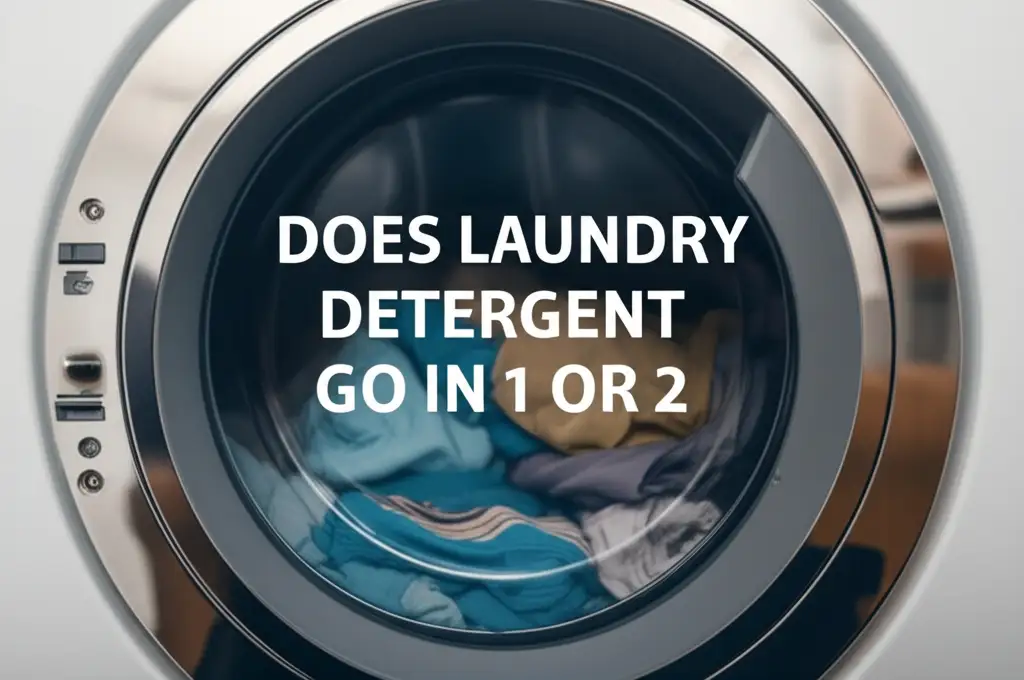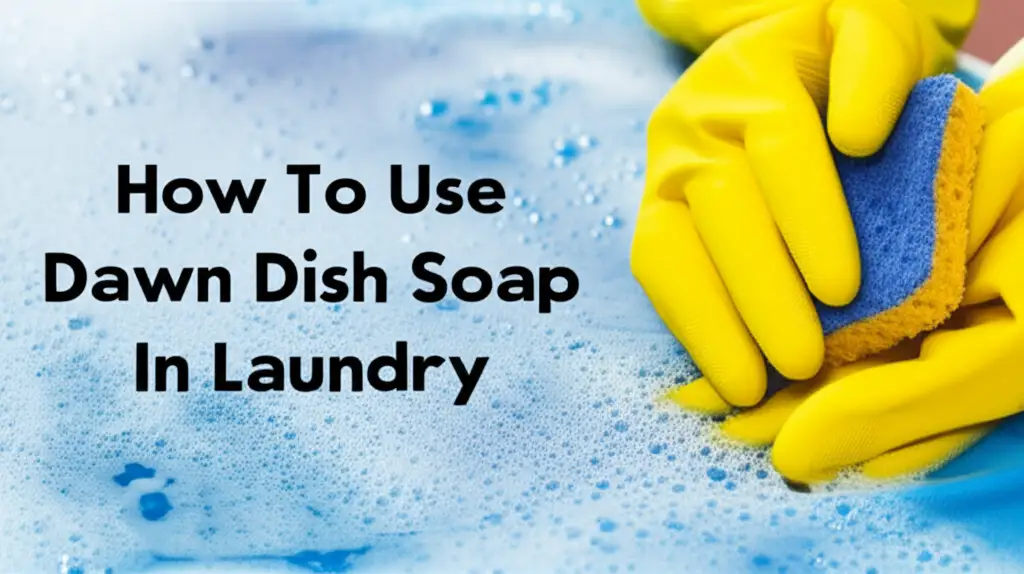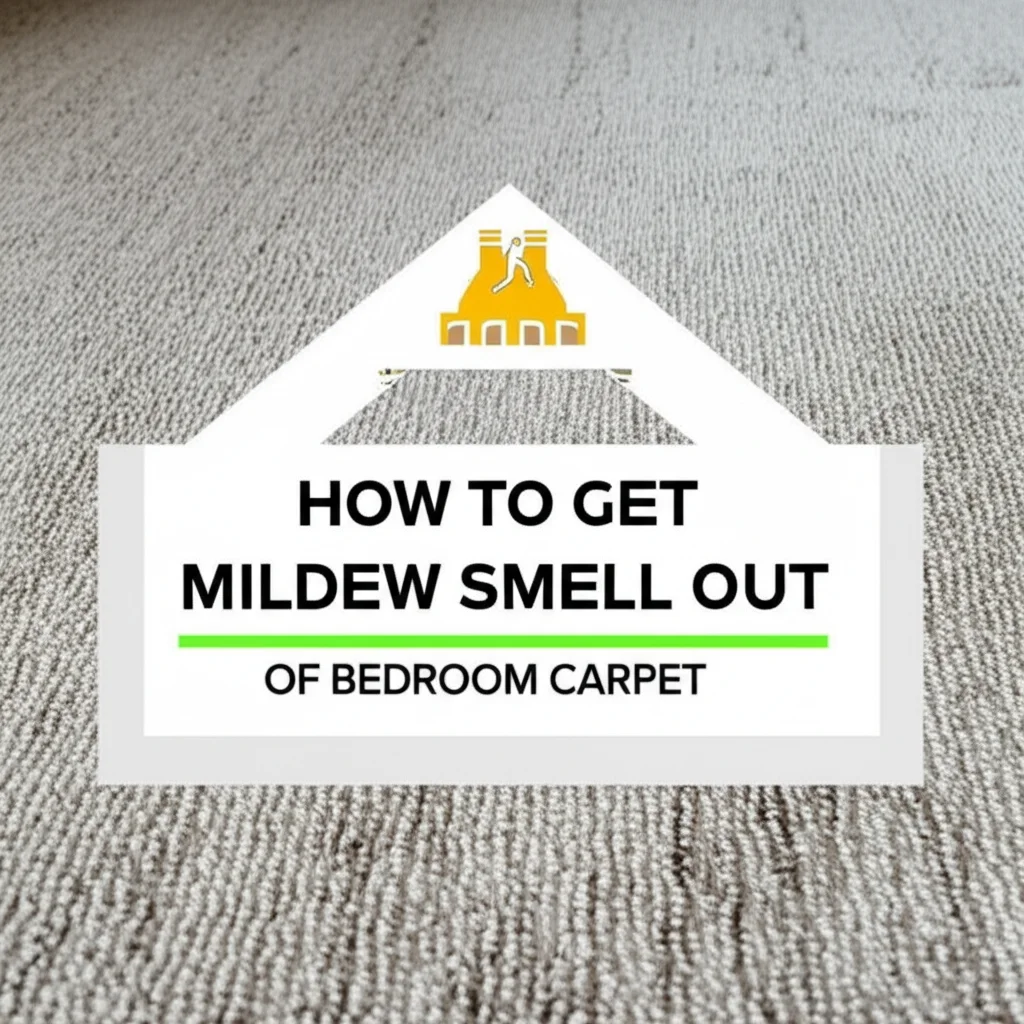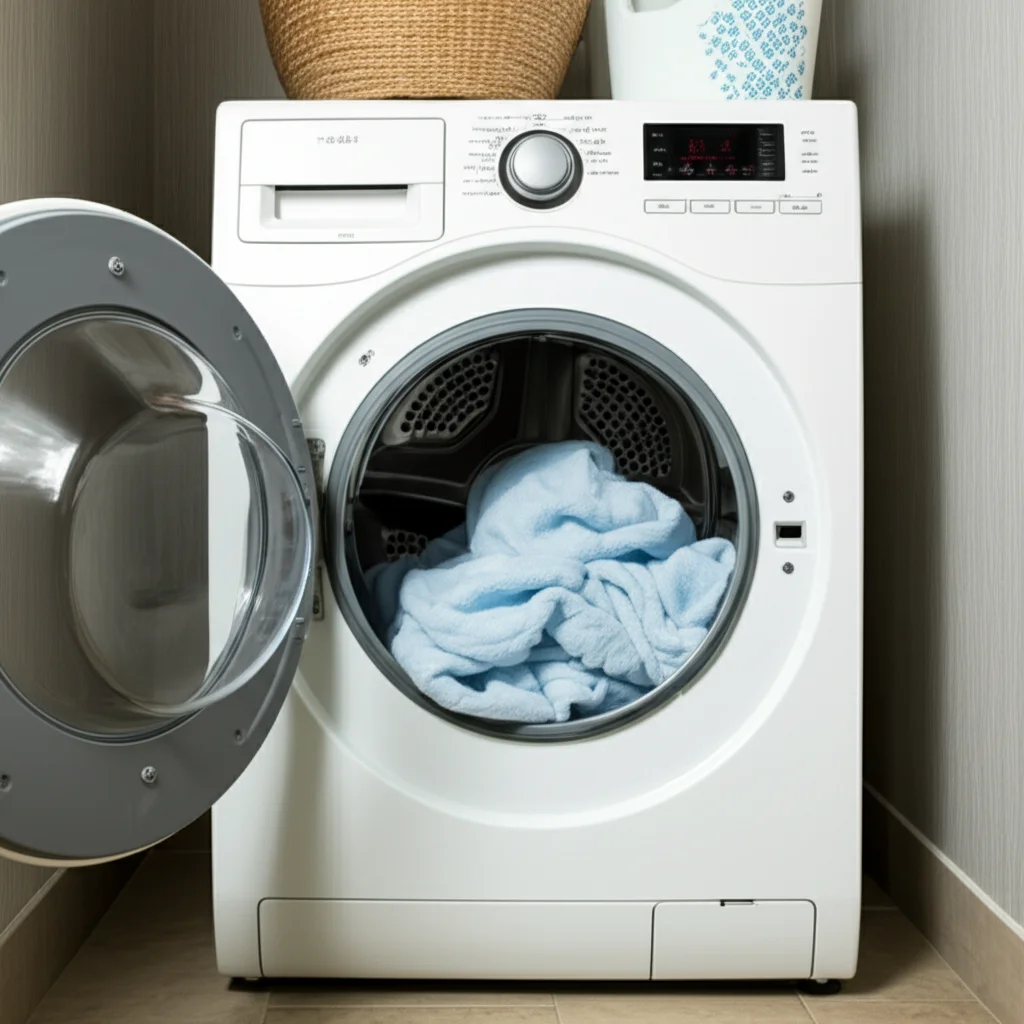· Todd Martin · Laundry Tips · 12 min read
How To Clean Stinky Towels

How to Clean Stinky Towels and Keep Them Fresh
Few things feel worse than reaching for a fresh towel only to be met with a musty, unpleasant odor. Stinky towels are a common household problem. They often result from mildew growth or detergent buildup. This article helps you understand why your towels smell bad. It also provides clear, actionable steps on how to clean stinky towels effectively. We will explore various methods, from natural remedies like vinegar and baking soda to proper washing and drying techniques. Let’s make your towels soft, fluffy, and fresh once more.
Takeaway:
- Eliminate towel odors by using vinegar or baking soda in your wash.
- Prevent future smells through proper drying and storage.
- Understand the causes of musty towels to maintain long-lasting freshness.
Stinky towels often result from mildew. You can clean stinky towels effectively by washing them with hot water and adding a cup of white vinegar to the cycle. Follow this with a second wash using baking soda to neutralize remaining odors. Ensure complete drying immediately after washing to prevent new odors.
Understanding Why Towels Get Stinky: The Culprits Behind the Odor
Have you ever wondered why your freshly washed towels sometimes still carry a strange smell? It is a common issue. Towels pick up dirt, dead skin cells, and moisture daily. This combination creates a perfect environment for odors. Understanding the root causes helps you fight the problem effectively. We want our towels to feel clean and smell fresh every time.
Moisture and Mildew Growth
Moisture is the primary enemy of fresh towels. When towels stay damp for too long, they become a breeding ground for mildew. Mildew is a type of fungus that thrives in moist, warm conditions. It produces that distinct musty, earthy smell. Leaving wet towels in a hamper, on the floor, or even just hanging too closely together can lead to mildew. This growth starts quickly. I have made this mistake many times myself. Always focus on quick drying to prevent this issue.
Detergent Buildup and Residue
Sometimes, your towels smell bad because of too much detergent. If you use too much laundry detergent, it does not always rinse out completely. This residue traps dirt, oils, and moisture within the towel fibers. Over time, this buildup creates a sticky layer. This layer becomes a food source for bacteria and mildew. It also makes your towels feel stiff and less absorbent. Using the correct amount of detergent for your load size is important. Using less detergent often works better.
Hard Water Issues
Hard water can also contribute to stinky towels. Hard water contains high levels of minerals like calcium and magnesium. These minerals interact with soap and detergent. They form a film that sticks to fabric fibers. This film makes it harder for detergents to clean effectively. It also traps odors and provides a place for mildew to grow. If you live in an area with hard water, you might need to adjust your laundry routine. Consider using water softeners or adding a boost to your wash cycle. This helps to break down mineral buildup.
The Vinegar Power Method: A Natural Odor Buster
White vinegar is a natural cleaning powerhouse. It works wonders on stinky towels. Vinegar is acidic. It breaks down detergent residue and mildew that cause unpleasant odors. It also helps to sanitize fabrics without harsh chemicals. This method is effective and gentle on your towels. I use this method often for my own towels.
Preparing Your Vinegar Wash
First, gather your stinky towels. Do not mix them with other laundry items. We want to give them a concentrated cleaning treatment. You will need one to two cups of distilled white vinegar. Do not add any detergent at this stage. The goal is to strip away the buildup first. This prepares the towels for a proper cleaning.
Washing Process with Vinegar
Place your stinky towels into the washing machine. Set your washing machine to the hottest water setting suitable for your towels. Hot water helps to kill bacteria and loosen trapped grime. Add one to two cups of white vinegar directly into the detergent dispenser. You can also pour it into the fabric softener dispenser. Run a full wash cycle. Do not add any laundry detergent during this first wash. The vinegar works to strip away all the odor-causing residues. For exceptionally smelly towels, you can run a second rinse cycle with just water. This ensures all vinegar residue is gone. For more detailed steps on this powerful method, you can learn how to clean towels with vinegar. This process is very effective.
Baking Soda Boost: Enhancing Your Laundry Routine
Baking soda is another natural wonder for odor removal. It is an excellent deodorizer. Baking soda neutralizes odors instead of just masking them. It also helps to soften water and boost the cleaning power of your detergent. Using baking soda alongside or after a vinegar wash provides a powerful one-two punch against persistent towel odors. This combination leaves towels feeling truly clean.
Adding Baking Soda to Your Wash
After the vinegar wash cycle finishes, leave the towels in the washing machine. Now, it is time for the baking soda. Add half a cup of baking soda to the detergent dispenser. You can also sprinkle it directly into the drum with the towels. Do not add any liquid laundry detergent yet. We want the baking soda to work on its own. Set your washing machine to the hottest water setting again. Run another full wash cycle. The baking soda will absorb and neutralize any lingering smells. It also helps to fluff up the towel fibers.
Combining Baking Soda and Vinegar
For very tough odors, you can combine these two powerful ingredients. First, follow the vinegar wash step. After that cycle finishes, add the baking soda for a second cycle. Do not use them in the same cycle as they can counteract each other. The goal is two separate, powerful cleaning actions. This dual approach ensures deep cleaning and complete odor elimination. Your towels will come out smelling fresh and feeling soft. This method is especially useful for towels that have been neglected for a while.
The Hot Water and Bleach Strategy (For White Towels Only)
Bleach is a strong disinfectant and whitener. It is very effective at killing mold, mildew, and bacteria. It also brightens white towels. This method is best for white or light-colored towels. Bleach can damage or discolor colored towels. Always check your towel’s care label before using bleach. Use this method with caution and proper ventilation.
Safe Bleach Application
First, sort your towels. Only use this method for white towels. Colored towels will lose their color. Place your white stinky towels into the washing machine. Fill the bleach dispenser with up to three-quarters of a cup of liquid chlorine bleach. Do not pour bleach directly onto the towels, as this can cause spots or damage. If your machine does not have a dispenser, dilute the bleach with a quart of water first. Then, add it to the wash water five minutes into the cycle. Never mix bleach with other cleaners, especially ammonia or vinegar. This creates dangerous fumes.
Importance of Hot Water
Hot water is crucial when using bleach. Hot water helps the bleach work more effectively. It also helps to kill mildew and bacteria trapped in the towel fibers. Set your washing machine to the hottest water temperature available. This ensures a deep clean and sanitization. Run a full wash cycle. After the cycle, dry the towels completely. For detailed instructions on maintaining the brightness and cleanliness of white towels, you can refer to how to clean white towels. This process will leave your white towels smelling clean and looking bright.
Preventing Stinky Towels: Best Practices for Freshness
Cleaning stinky towels is one part of the solution. Preventing them from getting stinky in the first place is equally important. Good habits make a big difference. Regular care keeps your towels fresh and extends their lifespan. I have learned that prevention truly saves time and effort.
Proper Drying Techniques
Drying towels properly is the most important step in preventing mildew. Never leave wet towels bunched up. Always hang them immediately after use. Hang them fully extended, not folded, to allow air circulation. If you use a towel bar, spread the towel out rather than folding it in half. For machine drying, tumble dry towels on a medium to high heat setting. Ensure they are completely dry before folding them. Damp towels folded away will become stinky quickly. I always make sure my towels feel completely dry to the touch before putting them away.
Optimal Washing Habits
Frequent washing helps prevent odor buildup. Wash bath towels every three to four uses. Wash hand towels and kitchen towels even more often, perhaps every day or two. This prevents dirt, oils, and moisture from accumulating. Use the right amount of detergent. Too much detergent leads to residue. Too little might not clean effectively. I have found that less detergent often works better. Avoid using too much fabric softener. Fabric softener can build up on fibers. This reduces absorbency and traps odors. For specialized cleaning like kitchen towels, remember how to clean kitchen towels involves similar principles but often deals with tougher grease and food stains.
Air Circulation and Storage
Store towels in a well-ventilated area. Avoid stuffing them into crowded linen closets. Air needs to circulate around them. Ensure your linen closet is dry. If it feels humid, consider using a moisture absorber. Do not store damp towels in your closet. Ensure they are bone dry before folding them neatly. Good air circulation prevents the stagnant, moist conditions that mildew loves. Keeping your home clean, especially areas where laundry accumulates, helps with overall freshness. You can find more tips on how to keep a home clean to support a fresh environment.
Troubleshooting Persistent Odors and Beyond
Sometimes, despite your best efforts, towels still retain a slight smell. This can be frustrating. Persistent odors often point to underlying issues. Addressing these issues can solve the problem for good. It might involve looking beyond just the towels themselves.
Dealing with Front-Loader Odor
Front-loading washing machines are energy-efficient. However, they can develop a musty smell themselves. This smell can transfer to your laundry, including your towels. The rubber gasket around the door often traps moisture, detergent residue, and mold. To clean it, wipe the gasket after every use. Once a month, run a hot cycle with a cup of white vinegar or a washing machine cleaner. Leave the door ajar after cycles to allow air circulation. This prevents mildew growth inside the machine. A stinky washing machine cannot produce truly clean towels. Similarly, if you notice other unpleasant smells in your home, learning how to clean stinky drains might also be helpful as bad odors can spread.
When to Replace Your Towels
Even with the best care, towels do not last forever. Over time, towel fibers break down. They become less absorbent. They can also accumulate deep-seated odors that are impossible to remove. If your towels are old, worn thin, or consistently smell bad after cleaning, it might be time for new ones. A general rule is to replace bath towels every two to five years. This ensures maximum absorbency and freshness. Investing in new, high-quality towels can make a big difference in your daily comfort. Regularly checking your dryer for lint and cleaning it will also ensure it operates efficiently, helping towels dry properly. Refer to how to clean your dryer for maintenance tips.
FAQ Section
Q: Can I use fabric softener on stinky towels? A: No, it is best to avoid fabric softener on stinky towels. Fabric softener coats towel fibers. This coating traps odors and reduces absorbency. It also contributes to residue buildup. Instead, use white vinegar as a natural fabric softener in the rinse cycle. This keeps towels soft without the sticky residue.
Q: How often should I wash my towels to prevent odors? A: You should wash bath towels after three to four uses. Wash hand towels daily or every other day. Kitchen towels also need frequent washing, often daily. Regular washing prevents mildew and odor from building up. It keeps your towels fresh and hygienic.
Q: Why do my towels still smell after washing? A: Your towels might still smell after washing due to detergent buildup, mildew in the towel fibers, or a dirty washing machine. Try deep cleaning with vinegar and baking soda. Also, ensure your washing machine is clean, especially the gasket in front-loaders. Proper drying immediately after washing is also key.
Q: Is it safe to mix bleach and vinegar when washing towels? A: No, never mix bleach and vinegar. This combination creates highly toxic chlorine gas. This gas is very dangerous. Always use bleach and vinegar in separate wash cycles. Allow for a rinse cycle in between if using both. Safety is very important when doing laundry.
Q: What temperature water is best for stinky towels? A: Hot water is best for stinky towels. Hot water helps to kill bacteria, mildew, and yeast that cause odors. It also helps to dissolve detergent residue more effectively. Always check your towel’s care label to ensure hot water is suitable for the fabric type.
Conclusion
Tackling stinky towels might seem like a chore. However, it is a straightforward process. By understanding the causes of odors and applying the right cleaning methods, you can restore freshness to your linen. We explored powerful solutions, from the natural degreasing action of vinegar to the odor-neutralizing power of baking soda. Remember, proper washing and, most importantly, thorough drying are your best defenses against musty smells.
Implement these tips into your laundry routine. You will enjoy soft, truly clean, and fresh-smelling towels every time. Say goodbye to that unpleasant musty odor. Embrace the comfort of a perfectly fresh towel after every shower. You now have the knowledge to conquer stinky towels for good.
- stinky towels
- clean towels
- laundry tips
- odor removal
- mildew smell
- washing towels
- fresh towels





